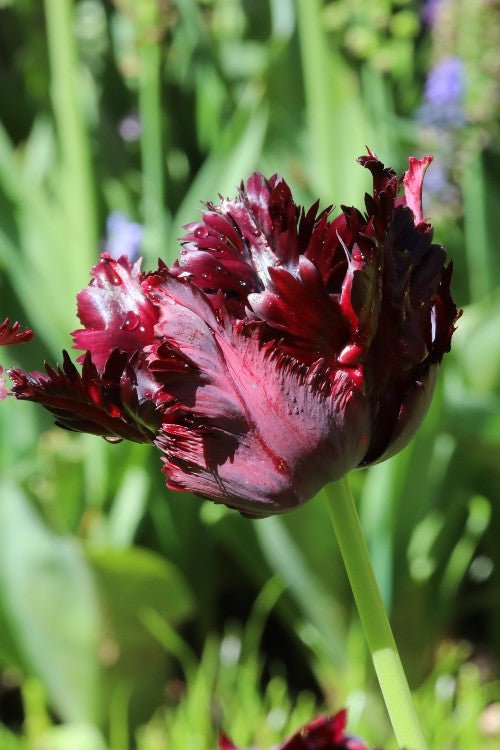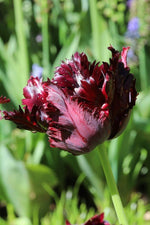
Black Parrot
1275
About Black Parrot
The enchanting Tulip Black Parrot will captivate you with its dramatic and unique beauty. This exquisite flower features deep, velvety black petals with vibrant green accents, creating a stunning contrast that will add a touch of elegance to any garden or floral arrangement.
- Striking black petals with vibrant green edges
- Distinctive fringed and ruffled appearance
- Tall and sturdy stems for excellent vase life
- Blooms in late spring, adding a splash of drama to your garden
How to plant and take care of Black Parrot
- Choose a well-draining location with full or partial sun
- Plant bulbs in the fall, about 6 inches deep and 4-5 inches apart
- Water thoroughly after planting and keep the soil moist
- Mulch around the bulbs to maintain moisture and regulate temperature
- Provide regular watering during dry spells
- Deadhead spent flowers to promote continuous blooming
- Allow foliage to yellow and wither naturally before removing
- Protect bulbs from excessive moisture during the dormant period
FAQs

